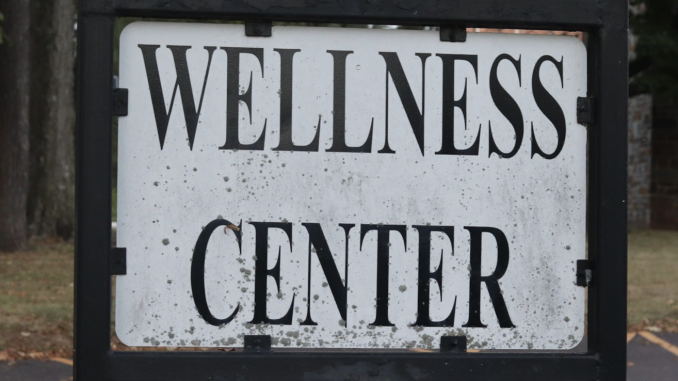
Aidan Nadell ainadell@ursinus.edu
With the signing of the Okanagan Charter by President Hannigan in October, this semester has seen a bolstered roster of activities to promote the mental health and well-being of Ursinus students. You may be familiar with some of the offerings, such as meditation and yoga. But, if you are like I was, then an activity called “reiki” may feel completely alien.
At least, I found Reiki to be foreign until I gave it a try. I walked into the Bear’s Den on the first Sunday of this semester with a heavy dose of skepticism. As someone who believes heavily in science, I was hesitant to open my mind to the practice of “energy healing.” It took me by surprise when I learned that Reiki works because of — not instead of — the power of science (through biofield energy). Intrigued, I listened as Shelby Lynn, the owner of Ki Collectors Massage & Energy Healing, broke down Reiki into its components: “Rei,” meaning spiritual wisdom; and “Ki,” meaning life energy. The practice is relatively new, having been discovered in 1922. That being said, the idea of controlling Ki is not exclusive to just Reiki; it has been used in martial arts, meditation, and other mental development practices for centuries.
Though I do not quite grasp why it works, I understand the appeal of Reiki and how it works. The sessions offered at Ursinus involve a guided meditation followed by a period of silence in which Reiki practitioners hover their hands along invisible energy pathways that emanate from your body. Traditionally, Reiki sessions will see healers physically touch the parts of the body that align with these pathways. Given the comfort level of students and protection of their privacy, Shelby and her team of healers do not make physical contact when working here. However, they do not need to touch you for you to experience the benefits of their practice. Before both sessions that I attended, I was riddled with the “Sunday Scaries” that we know too often as students. By the time that I left the Bear’s Den, I had a clear mind and rejuvenated focus on my remaining tasks.
I am not alone in my positive reception of Reiki. Junior Becca Laing ex- plained, “Reiki allows me to feel grounded and puts me in the mindset where I can tackle school, work, and personal life in a healthy way! After Reiki, I feel calm and relaxed, which is a great way to start my busy week.” Like me, Becca is new to Reiki but is already benefiting from its healing.
Meanwhile, Corey Criblear has several months of experience as a Level 1 Practitioner: a student of Shelby at Ki Collectors. He offered his perspective, “I know life can be a struggle. Everyone has their ups and downs and may go through things that nobody else does. But I always know as long as I have Reiki, I’ll be protected and I will always learn the necessary life lessons. Reiki has also taught me one of my strongest beliefs: if you keep pushing, you keep trying and doing your best. All good things will come to fruition.”
The practice of Reiki attracts individuals from a myriad of backgrounds, but they all share the common belief in healing. For instance, Shelby found her way to Reiki through her study of eating disorders and addictions as she earned a degree in Psychology. She has always felt a strong connection to mind-body healing, and wants to create space for her clients to have long-lasting results. By helping clients and students train their intuition, Shelby is fed by her work. She works alongside college-age students like Corey Criblear and Kiersten Frederick ‘23 as well as adult students like AnnMarie (who confessed that she was craving connection throughout the COVID-19 pandemic after waiting on a free Reiki session for two years).
As a disclaimer, there is a wide gamut of bodily sensations that are normal to experience during Reiki. Seven different centers in your body (called Chakras) correspond to energetic releases; for example, excessive yawning can indicate the Throat Chakra has been repressed from communication. I recognized a release in my shoulders after a long week of “shouldering” many obligations. In my first session, I felt a warm, tingly sensation spread across my body. My second session, however, brought cold shivers down my arms and legs. After a Reiki session is complete, it is recommended that you drink a lot of water.
“Reiki allows me to feel grounded and puts me in the mindset where I can tackle school, work, and personal life in a healthy way! After Reiki, I feel calm and relaxed, which is a great way to start my busy week.”
– Becca Laing ‘24
Have I piqued your interest? I am certainly looking forward to the next reiki session (coming up on Sunday, February 19 at 7PM in the Bear’s Den) and I hope to see you there! Shelby challenges newcomers to try three sessions before forming beliefs about Reiki. If you keep an open mind as I did, there might be some relief waiting for you on the other side of your Reiki experience.
If you have any questions or would like to find more information, use this link: https://www.kicollectors.com! Good luck with this semester and don’t forget to take care of your mental health!
